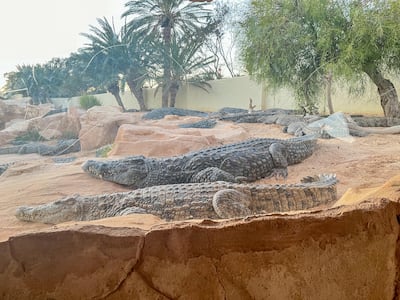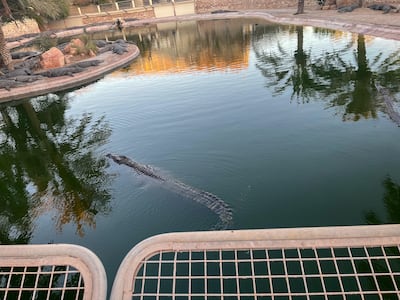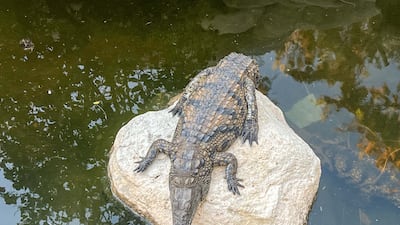Usually, those visiting an island might prefer not to be told that crocodiles lurk nearby, but visitors to one Tunisian island would probably disagree with them.
Djerba – known as the "island of dreams" – houses the country's only crocodile farm, which is proving a huge draw for Tunisians and foreign tourists alike.
In 2002, the farm at Djerba Explore Park in the country’s south opened with 400 Nile crocodiles, which were born in Madagascar in 1998.
The attraction, which is the largest in North Africa and the Mediterranean basin, is now home to 600 crocodiles aged between two and 25.
Caring for the large reptiles takes a lot of effort because of their aggressive nature. Some are known to kill and even eat their own kind.

“We have 600 crocodiles of different ages but we also have other reptiles such as snakes, lizards and turtles, so the four big families of reptiles can be seen here,” Mohamed Belahi, a tour guide at the park, told The National.
“Crocodiles are carnivores, even among each other, so we need to separate the young ones from the older ones and also use artificial insemination, because it might be risky for males and females to mingle,” he said.
Nile crocodiles range in length from 1.5m to 2.5m, although the biggest can reach five metres. They can weigh about a tonne and have a life span of up to 80 years.
During winter, crocodiles go into partial hibernation because of the cold.
“They are lazy creatures and they barely move even during hotter weather, but people should know that it is very safe to observe them io this farm,” Mr Belahi said.
Visitors in awe
As schools across Tunisia go on their annual winter break, families take the chance to visit the park with their children.
Samira, from the Tunisian city of Sfax, visited with her children.
“This [shows] an entire world ... which we are not familiar with so we wanted to discover it,” she told The National.
“People should visit Djerba at least once in their lives. The experience here makes it one hundred times better,” said Mouna, who visited with her two sons.

Manef and Yazid Cherni, aged 12 and 11 respectively, visited from Kef in the north-west with their parents.
“We did not expect them [the crocodiles] to be as huge – I was shocked,” Manef told The National as he watched the sleeping crocodiles through a glass window.
Climate change challenge
The conditions on the island, with an average annual temperature of 20°C, are ideal for the reptiles, although Mr Balahi told The National that climate change and fluctuating weather is making his job harder because sudden falls in temperature could put the crocodiles' lives at risk.
“They need special care," he said. "In winter it becomes necessary for us to heat the basins they swim in as well as make them clay houses where they can hide and take shelter if the weather gets colder than expected."
In January 2023, Croco Park in Agadir city in south-west Morocco opened its doors for visitors after receiving 325 crocodiles from the park in Djerba.


